As Indonesia celebrates National Teachers’ Day on Nov. 25, it is of course fitting to reflect on the symbolic yet apt nickname bestowed upon them: pahlawan tanpa tanda jasa (unsung heroes).
When one thinks of figures considered as heroes, it is of course understandable that the mind will remember the names of heroes we all read about in school textbooks.
Yet we must also remember to properly honor those real-life heroes standing in the flesh, in that very classroom.
Teachers. The perennial unsung heroes, the backbone of the Indonesian education system that nurtures generation after generation of change makers and leaders that drive the country ever forward on the global stage.
Even so, the system is not without its challenges. Many teachers all over the country have had to deal with numerous issues just to complete their duties, such as a lack of proper infrastructure, utilities or facilities.
Adding to these is the COVID-19 pandemic, which has disrupted much of the world’s day-to-day operations, including the entire education system.
In Indonesia, students, parents and teachers alike were thrown off balance when schools were swiftly closed to contain the spread of the virus, necessitating a rapid shift to online learning with little to no training beforehand.
Yet despite these myriad conundrums, many persevered. Just ask Lutfah Inganah.
A teacher at a raudhatul athfal (RA, Islamic early childhood education center) in Purworejo regency, Central Java, Lutfah, described the pandemic as “shock therapy” for those who live in villages, many of which have a lack of media and technology, as well as signal reception.
According to Lutfah, many parents do not have messaging apps such as WhatsApp on their phones, further hindering parent-teacher communication.
“When the pandemic started, us teachers were pushed to adapt to online learning even though there were not many training sessions. But on the other hand, there is a sense of gratitude since it served as a reminder – teachers should always continue learning along with the times, especially in terms of technology,” she said.
Lutfah noted that the training program held by Putera Sampoerna Foundation (PSF) had made a significant impact on her institution. She became a volunteer for a literature dissemination program for early childhood education, as well as introducing the Room to Read program to other RA teachers.
Lutfah is one of more than 56,000 teachers who have benefited from the Putera Sampoerna Foundation’s School Development Outreach training program.
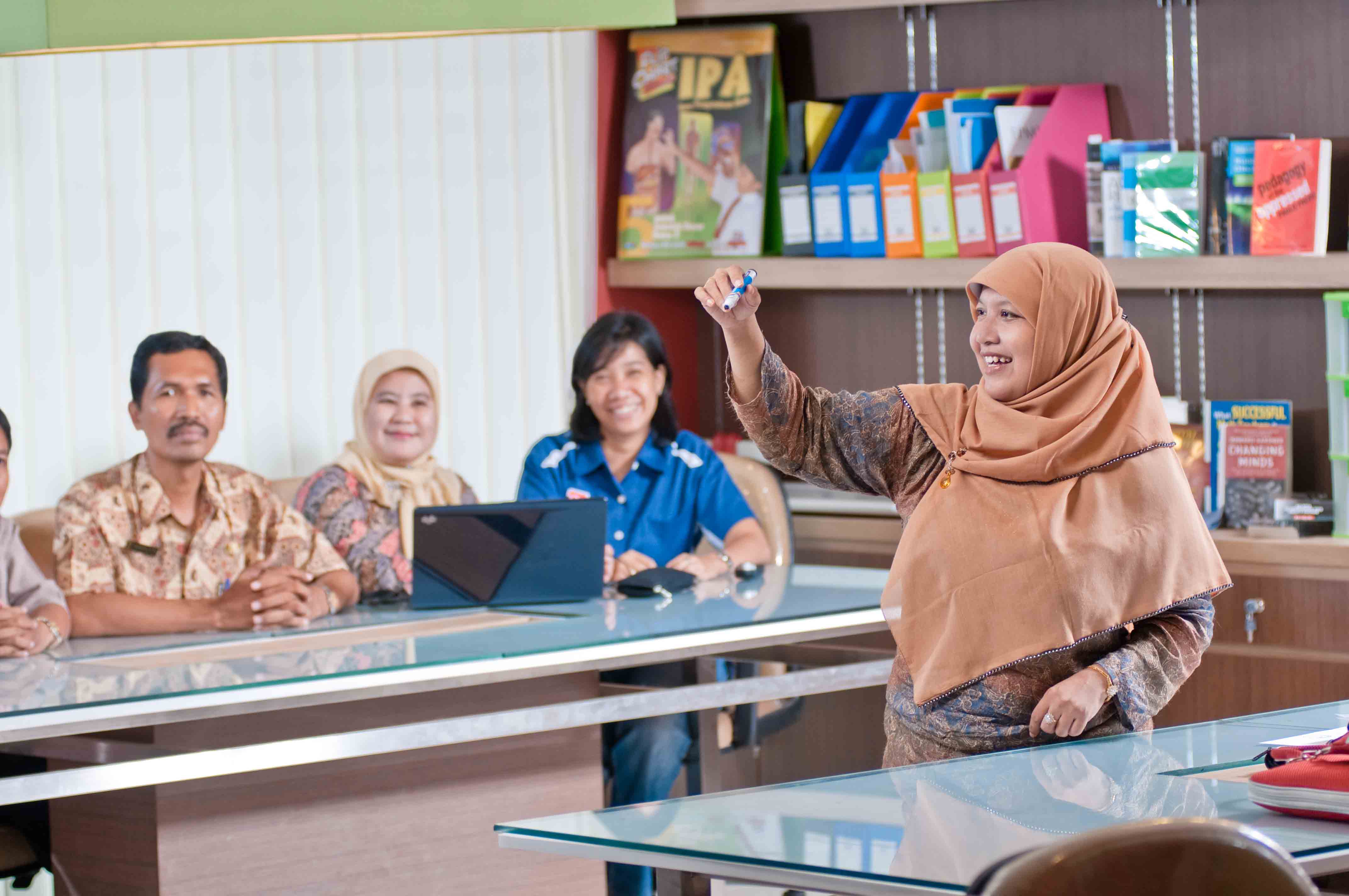 Putera Sampoerna Foundation organizes various programs & activities in line with the belief that education is a crucial aspect of the country's growth
Putera Sampoerna Foundation organizes various programs & activities in line with the belief that education is a crucial aspect of the country's growth
Founded in 2001, Putera Sampoerna Foundation is a social business institution aiming to improve the Indonesian education system so it can compete on a global level. Recently celebrating its 20th anniversary, the foundation has reiterated its commitment to Indonesia’s next generation of future leaders through its programs, mainly with the education-focused initiative called School Development Outreach.
Putera Sampoerna Foundation
To date, Putera Sampoerna Foundation has reached more than 92,000 teachers, 155,000 students, 855 schools and 40 madrasah (Islamic schools) across 57 regions and 27 provinces.
Putera Sampoerna Foundation - School Development Outreach (PSF-SDO) is an institution under Sampoerna University that was founded on the basis of improving the quality of schools and educators to create a new generation of human resources able to compete globally, with a particular focus on 3T (frontier, outermost and least developed) regions.
PSF-SDO Programs
Currently, PSF-SDO runs three flagship programs: the Lighthouse School Program, the Teacher Learning Center and Guru Binar.
The Lighthouse School Program is a three-year intervention program with a holistic and intensive approach designed to help schools achieve and surpass the National Education Standards (SNP) and serve as an example for other schools.
Lighthouse School Program
The Lighthouse School Program aims to support schools in achieving and surpassing the National Education Standards (SNP), serving as an example for other schools.
The LSP has been implemented in many regions, including the following:
Click year to see
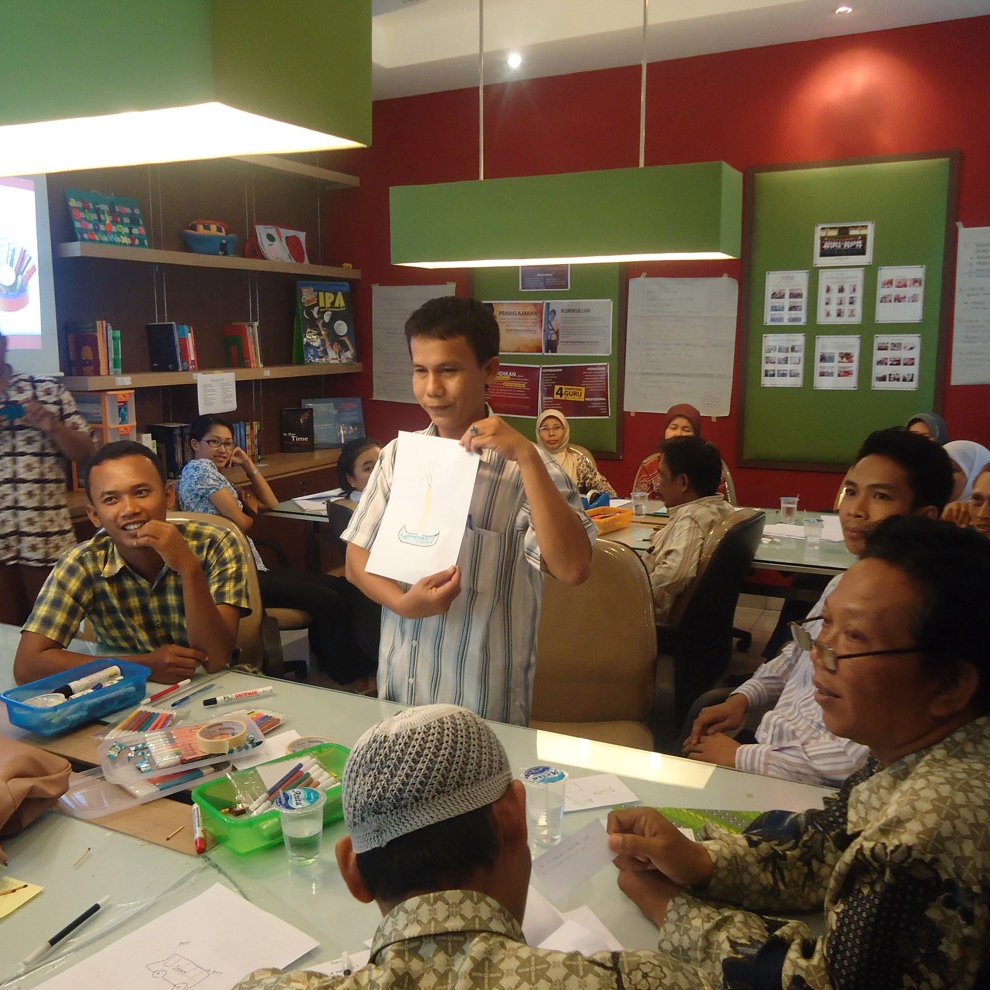
SMAN 1 & SMAN 17 Palembang
(2017-2019)
Primary & Middle School
18
Teacher330
Teacher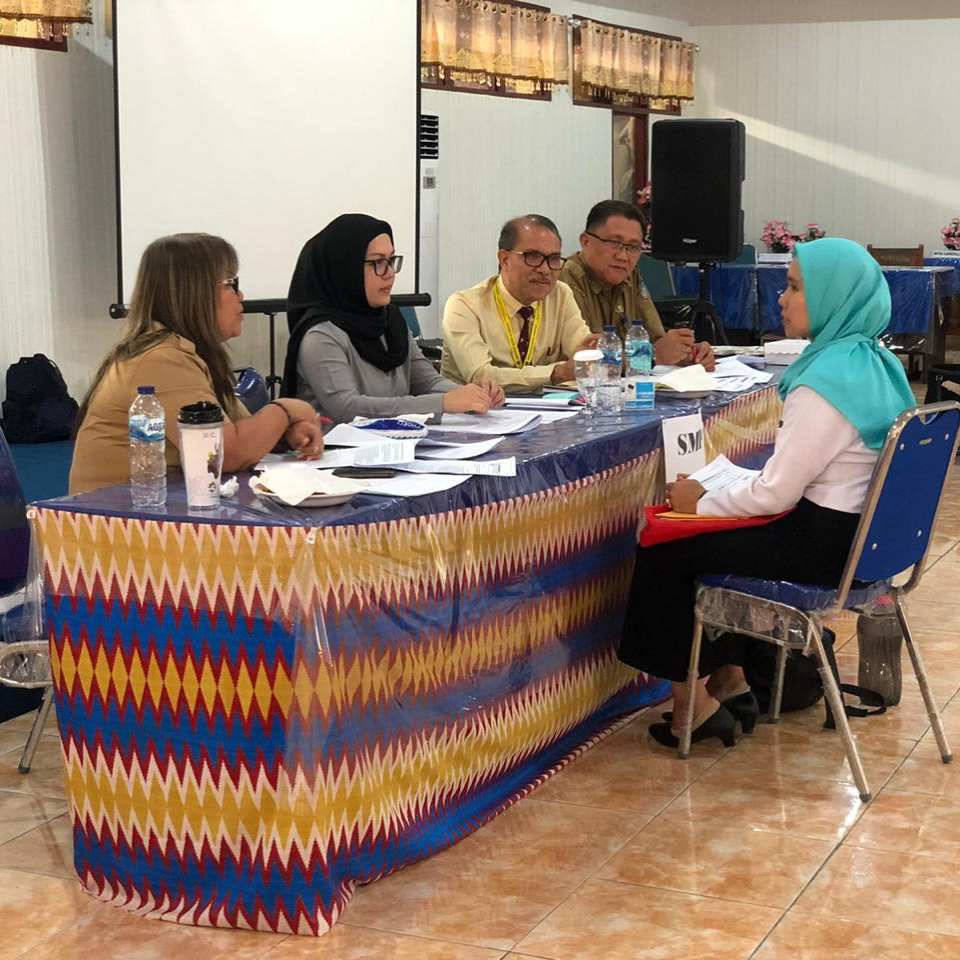
Menyuke, Barinang Mayun & Sidan - West Kalimantan
(2017-2019)
Primary & Middle School
20
Teacher455
Student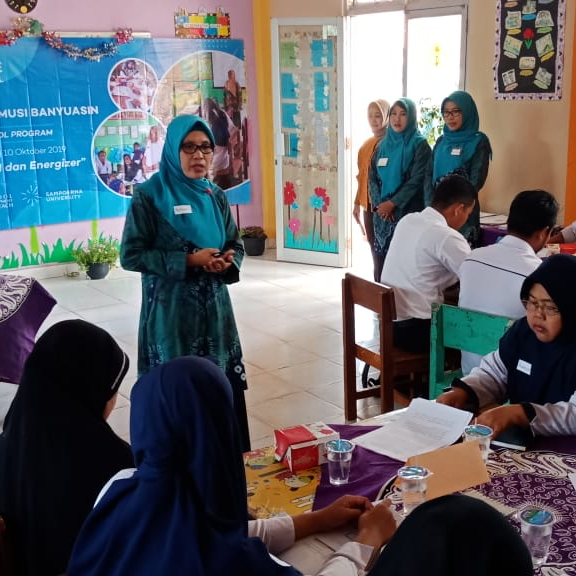
Regency of Musi Banyuasin
(2017-2019)
Primary & Middle School
20
Teacher455
Student199
Teacher3.311
Student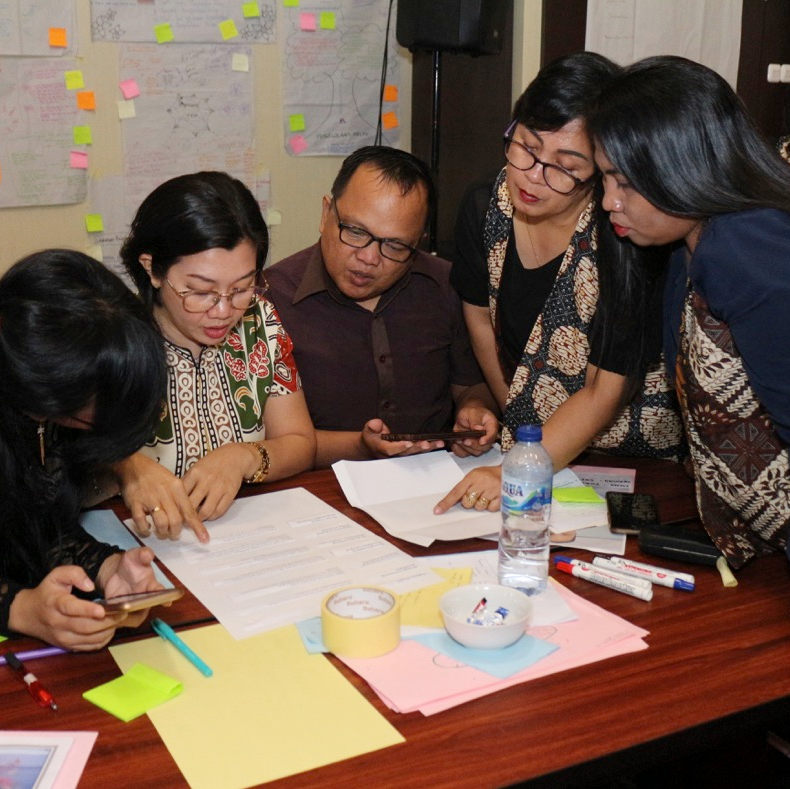
Kintamani, Bali
(2018 - 2020)
High School
57
Teacher450
Student923
Teacher925
Student1.850
Parents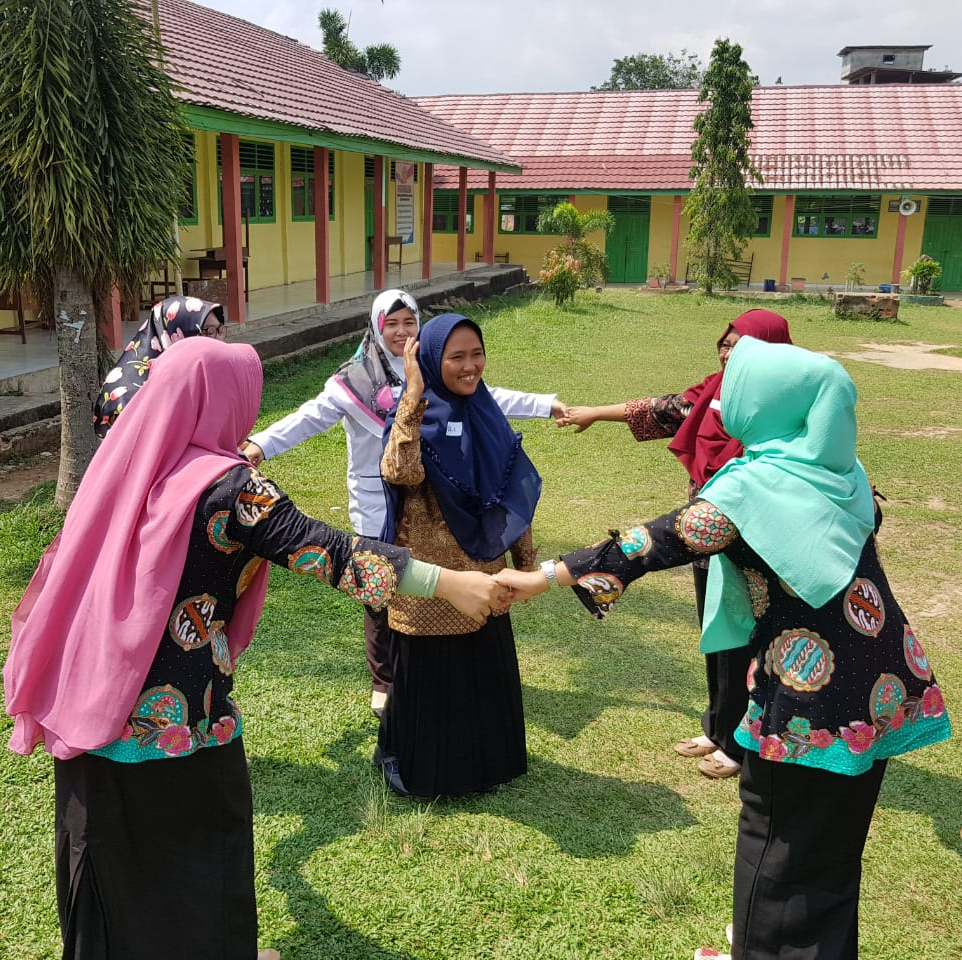
SMPN 4 Lubuk Linggau
(2018 - 2021)
Middle School
50
Teacher767
Student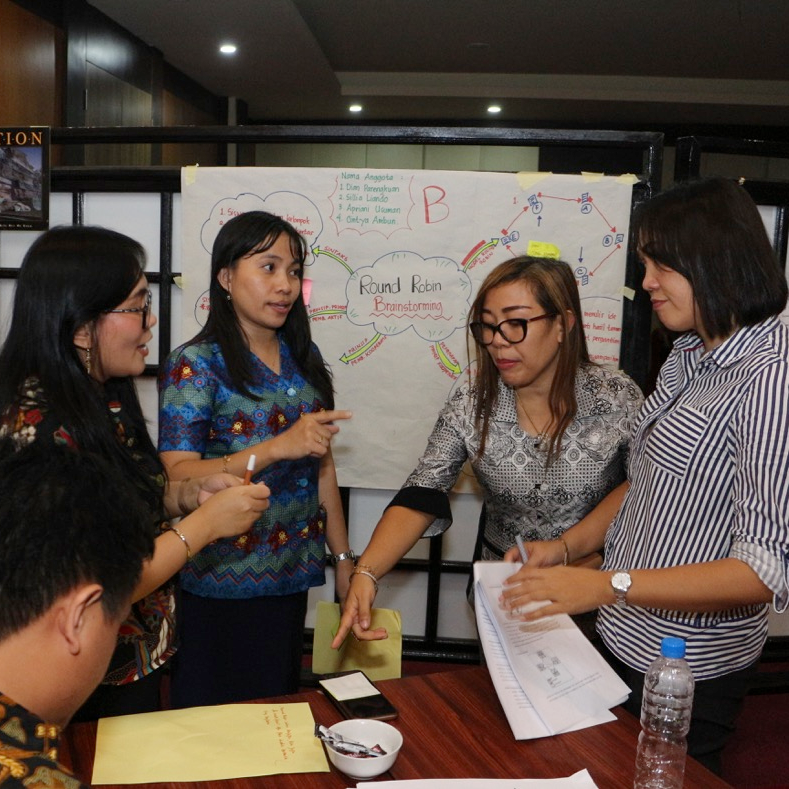
Regency of Pesisir Selatan, Padang
(2019 - 2021)
Middle School
40
Teacher900
Student200
Teacher500
Student1.000
Parents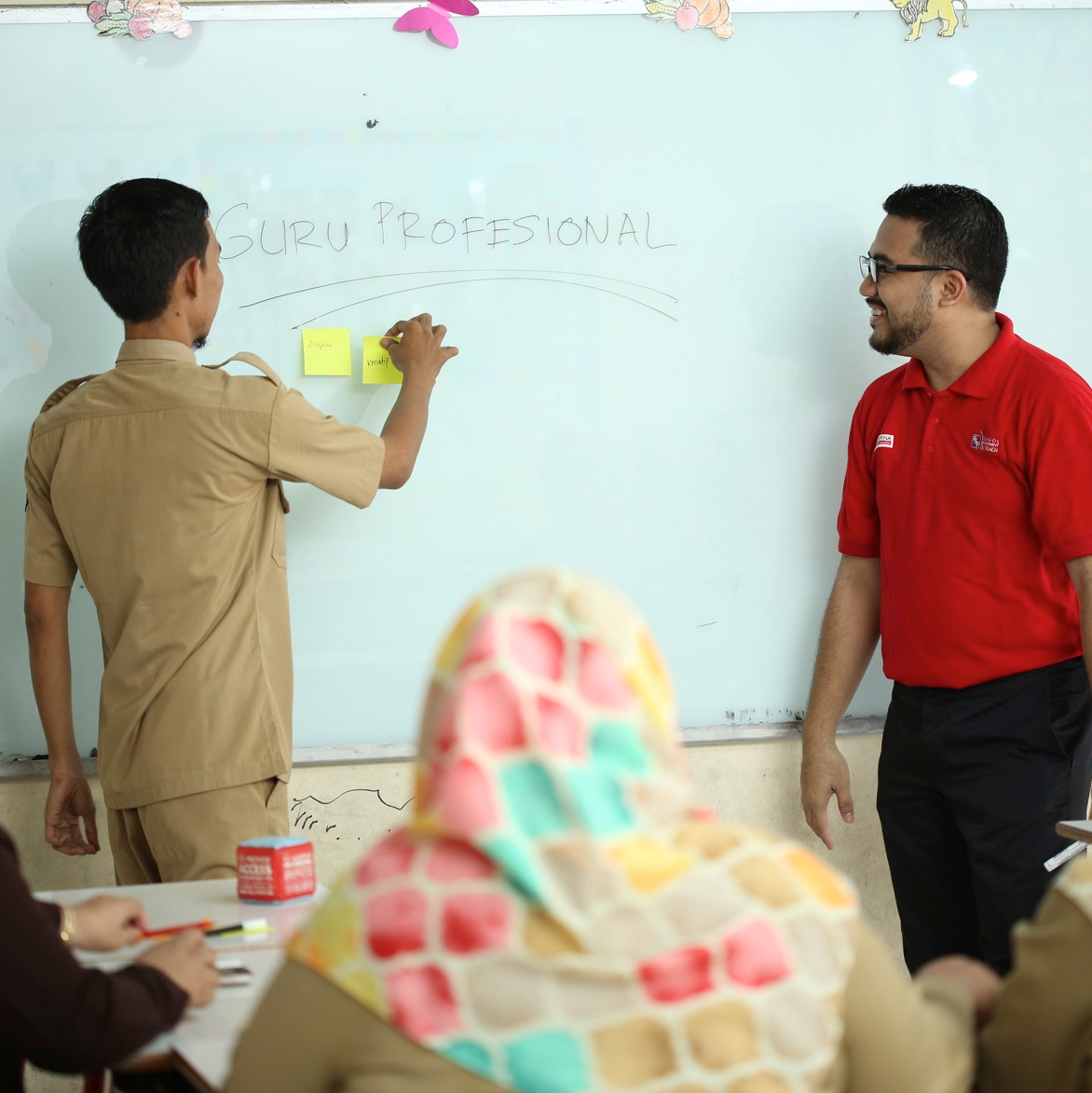
SMPN 8 Singaraja
(2019 - )
Middle School
34
Teacher663
Student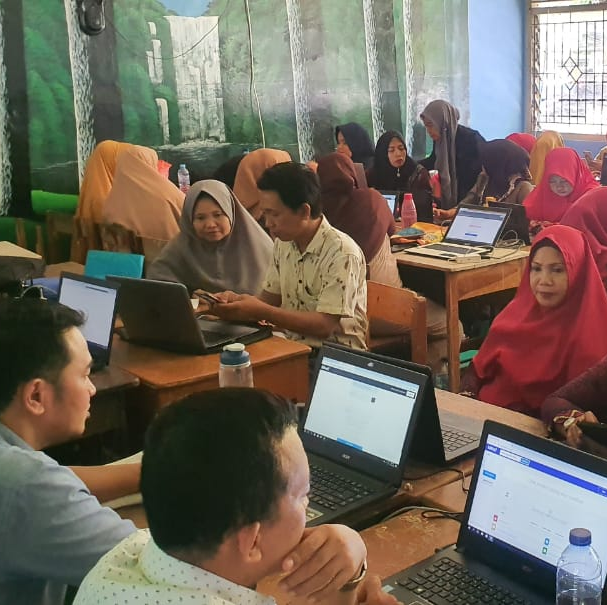
SMPN 1 Tompobulu
(2019 - )
Middle School
21
Teacher187
Student14 School
Total Beneficiaries
439
Teacher6.733
Student3.173
Teacher4.526
Student2.850
ParentsFor a more teacher-centric program, the Teacher Learning Center (TLC) is an independent studying organization run by selected teachers under the supervision of regional governments, developed as a solution to a lack of access for teachers to receive professional development.
Teacher Learning Center
Since its start in 2007, the organization has been known for its sustainable approach to achieving its objectives, exemplified by its motto “Dari Guru, Oleh Guru, Untuk Guru”, (By Teachers, From Teachers, For Teachers).
George Irawan, Putera Sampoerna Foundation Chairperson, Executive Board said “The TLC program is borne of our concerns after observing the number of teachers who are unable to access the training programs they need, especially in 3T regions. With TLC, we hope to provide wider and faster access to professional development for teachers,”
On the same page, Guru Binar is a program aiming to develop teachers’ competence and career development through a focused, contextual and applicative training methodology to optimize their performance.
Guru Binar is borne out of Indonesia’s current issues affecting its educational system, particularly for teachers.
A survey by the Education and Culture Ministry found that only four out of 10 teachers received access to competency improvement training programs.
At the same time, Indonesian teachers averaged 53.02 out of 100 in competency tests, showcasing the dire need for these development programs, especially coupled with Indonesia’s ranking of 36 out of 137 countries in the 2017 Global Competitiveness Index.
Guru Binar

The development of human resources is of course a vital objective for every nation, but Indonesia’s future leaders will have their work cut out for them, especially in the actualization of the Indonesia Emas 2045 vision.
Coinciding with the 100th anniversary of Indonesian independence, the vision’s goal is for Indonesia to become a developed country and part of the top 10 largest economies by the time the celebrations happen.
Yet for Indonesians to escape the middle income trap in around three decades’ time, a large-scale collaboration between all stakeholders will be required to uplift Indonesia’s human capital, both government and private sector.
This urgency is in line with Putera Sampoerna Foundation’s vision statement, which is to “produce high caliber future leaders for Indonesia to meet the challenges of global competition.”
George noted that in its two decades of service, the foundation continues to collaborate with various stakeholders including local governments, ministries, as well as the private sector in order to make more positive social impacts on the education sector.
“As a social business institution, we believe education is the key that will unlock all the country’s potential. But more importantly, we need to focus on the spearhead of Indonesia’s education system – that is, the teachers. When we improve teachers and schools’ quality through SDO programs, we improve the education system from its upstream and it will create more sustainability and trickle-down effects in the long-run,” said George.
“Putera Sampoerna Foundation as a social business institution believes that high-quality education is key to the future of the national development.”
Putera Sampoerna Foundation head of development and program Juliana said the School Development Outreach was the foundation’s commitment to providing a support system for teachers.
“This is done by providing a platform for teachers to share their experiences and best practices in teaching, so that they can develop new and novel ideas that can be readily applied to support Indonesia’s education system,” she said.
As the celebration winds down and teachers return to their classrooms once more, Putera Sampoerna Foundation’s mission continues on.
George expressed his hope that the Putera Sampoerna Foundation would also inspire others to contribute positively toward Indonesia’s social transformation.
“It is our hope that both teachers and students alike can benefit from the outpouring of support from all stakeholders involved, as they too will shape Indonesia’s path to the future with their own hopes and dreams,” he concluded.
* All photos were taken before the pandemic







